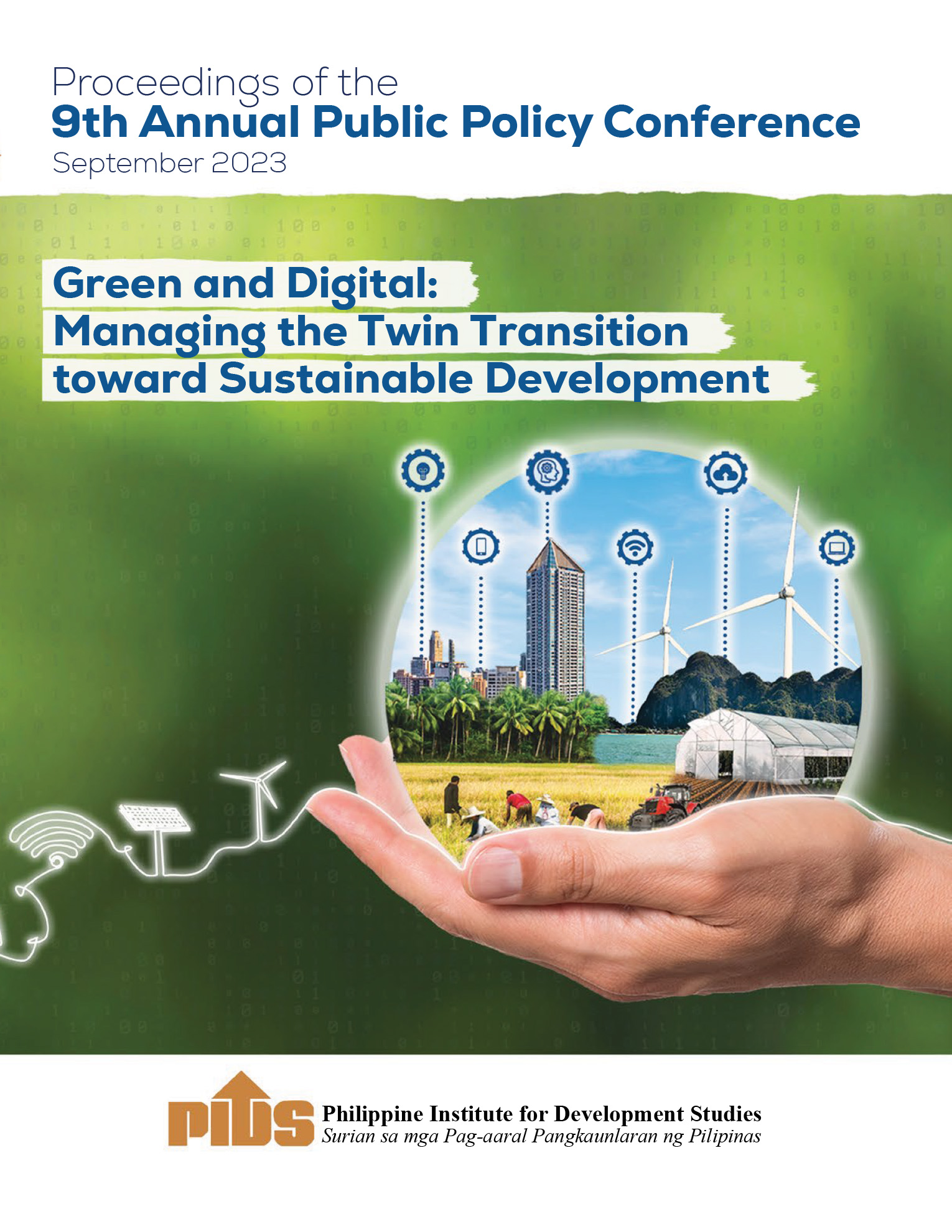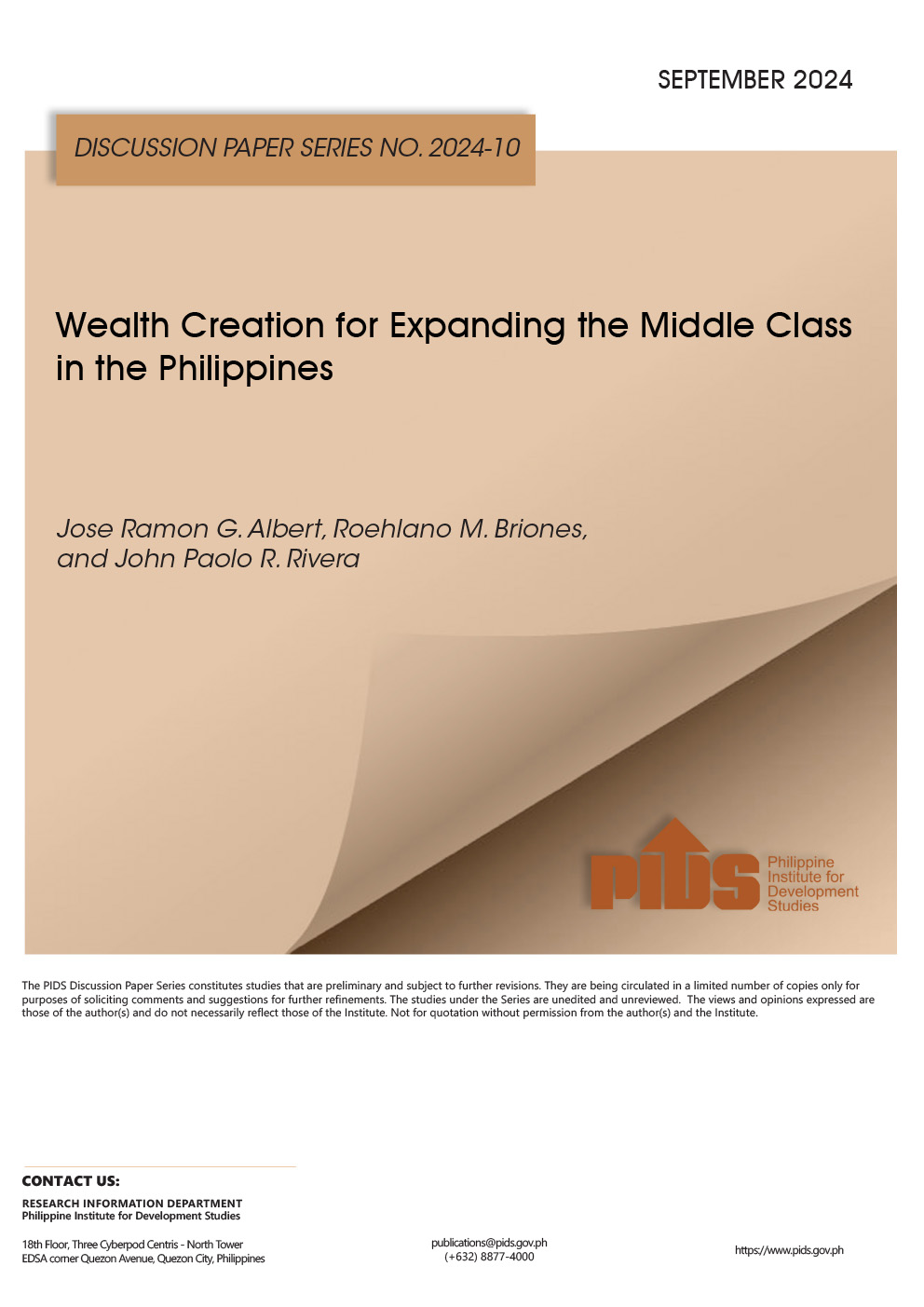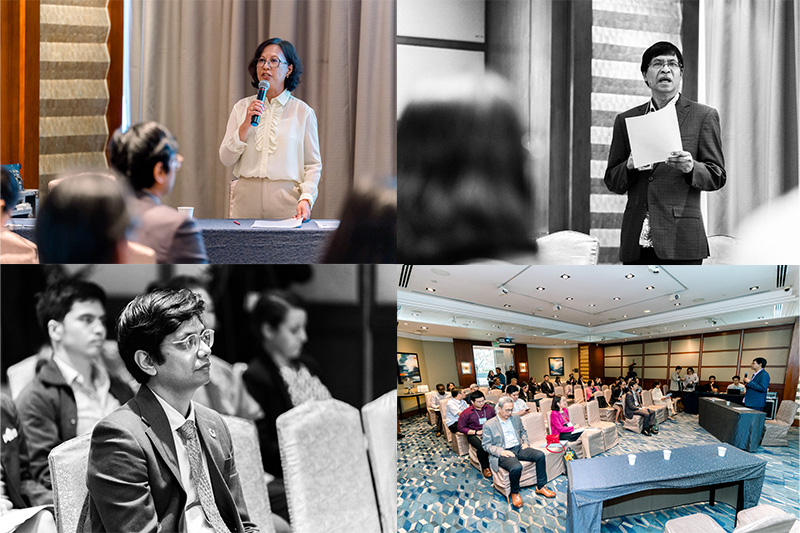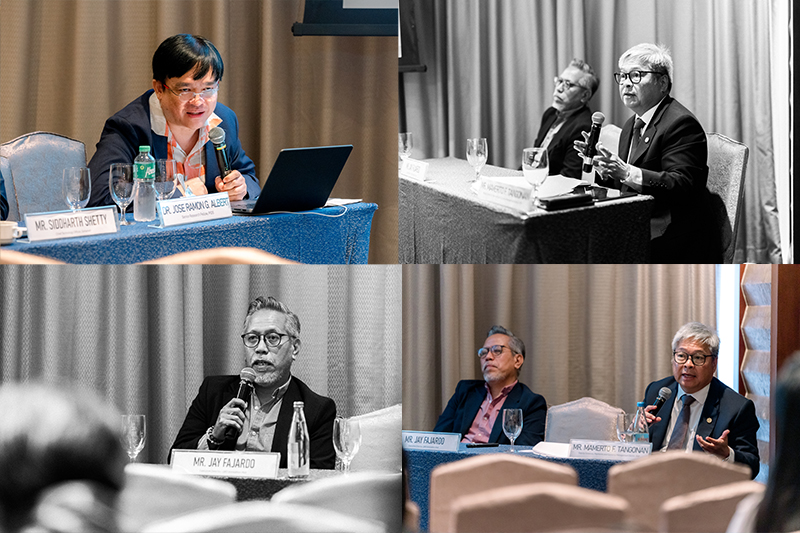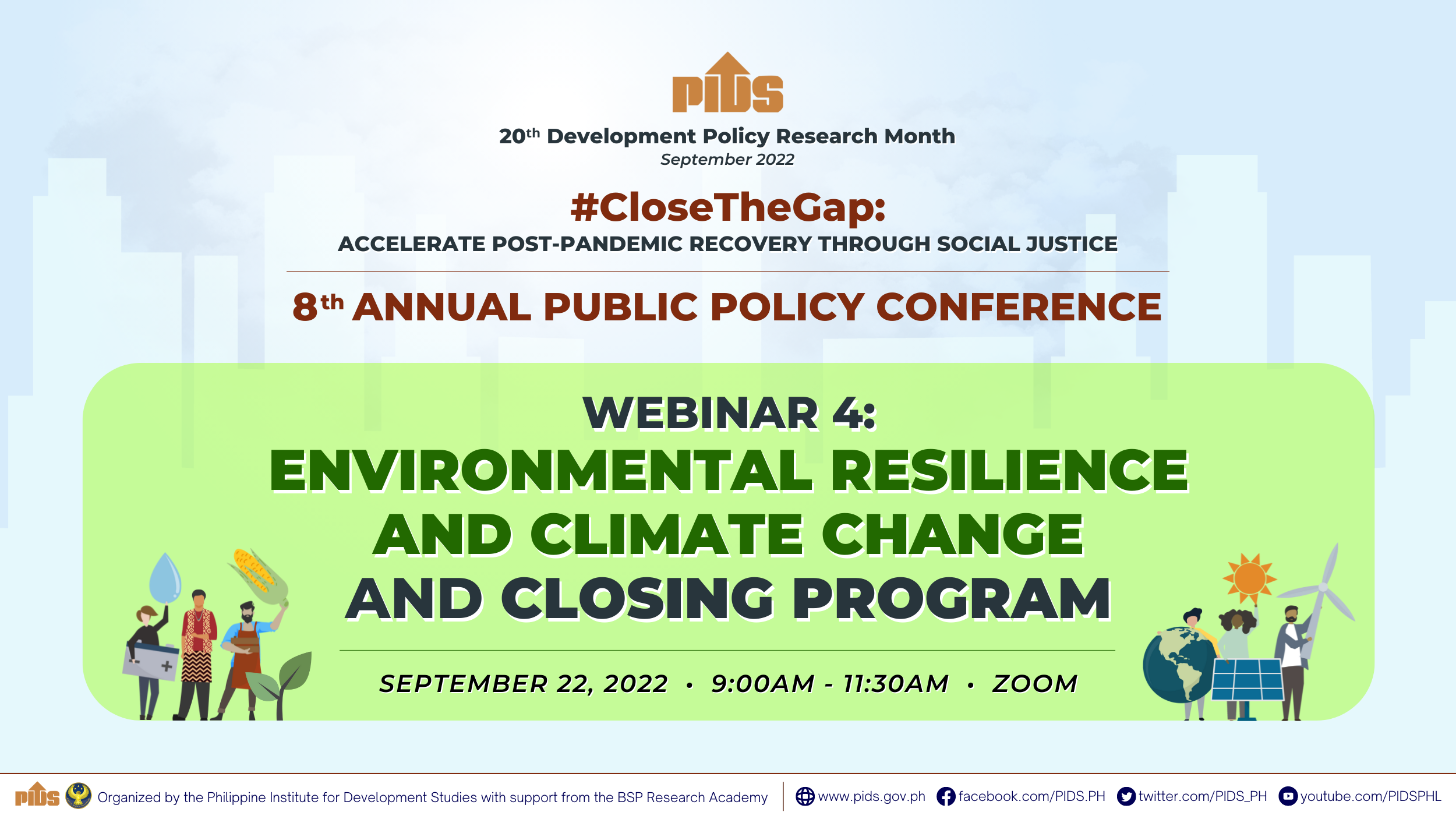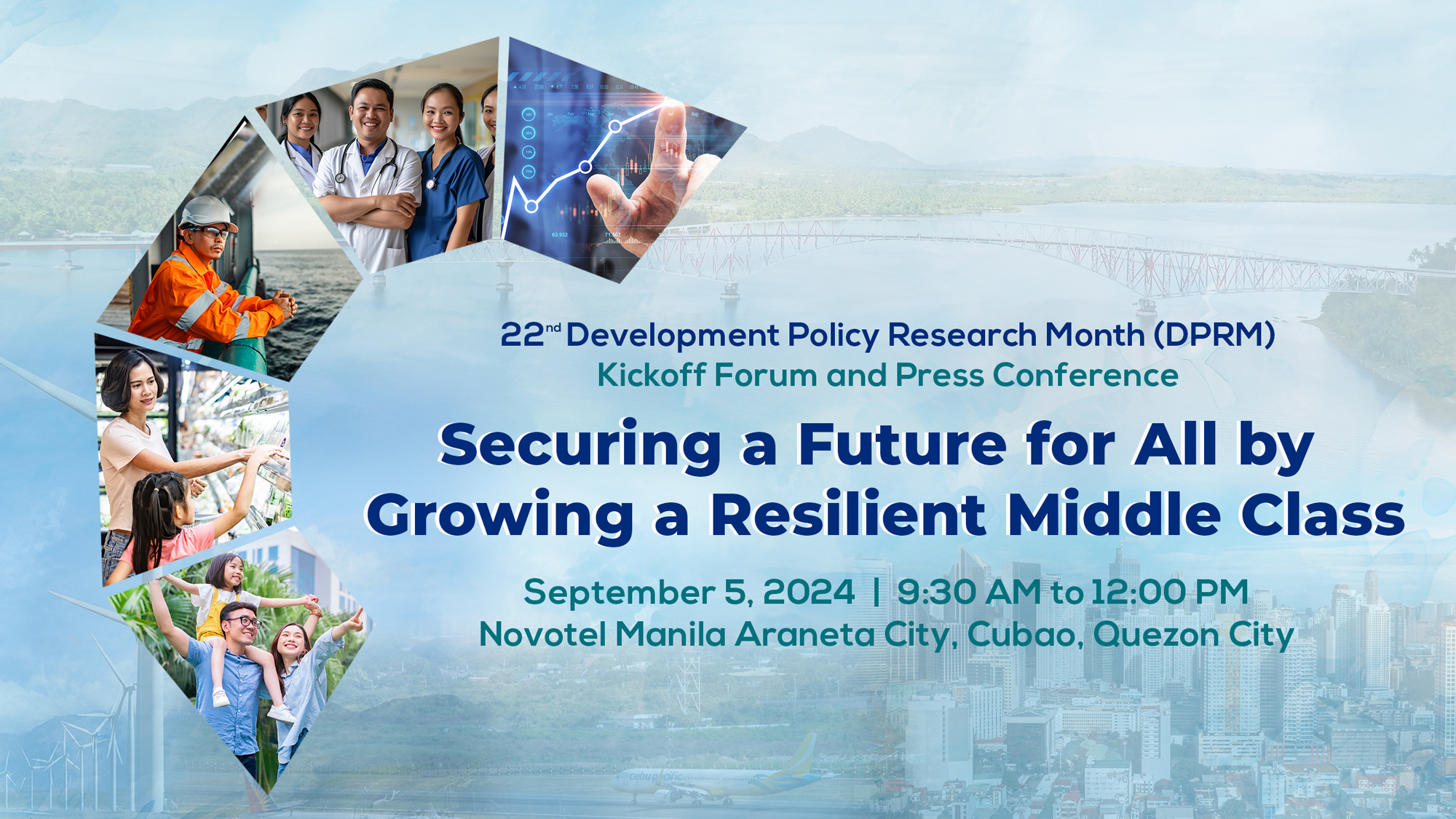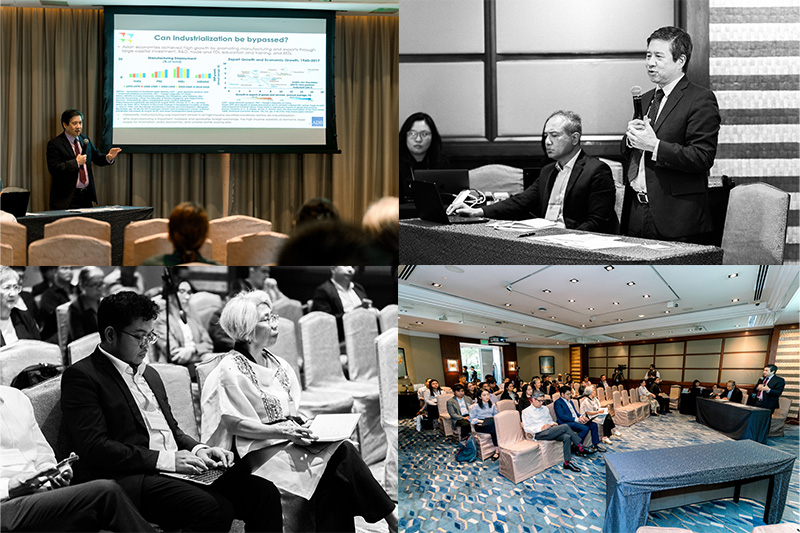
The fourth wave of globalization, fueled by technological advancements in robotics, artificial intelligence (AI), and 3D printing, can transform and stimulate growth in the sectors of agriculture, manufacturing, and services. This was the core message of the 10th Annual Public Policy Conference breakout session on “New Opportunities and Old Challenges in Manufacturing, Agriculture, and Services and Trade”.
Led by the Philippine Institute for Development Studies, the session focused on the role of digitalization across various sectors. Dr. Albert Park, Chief Economist and Director General at the Asian Development Bank, discussed how early signs of deindustrialization highlight the need to do away with restrictive industrial policies, and promote competition. Citing China as an example, he underscored the role of competition, anti-trust policies, and a global trade orientation in driving development.
Park stressed that industrial policies are most efficient when they act as complements instead of restrictions. “This focus on choosing between manufacturing- or services-led growth is not the right question,” he said. “It is about strategizing an enabling environment for both sectors to flourish and support each other,” he continued. He also emphasized the need for collaboration between regulators and the business sector to understand and remove the constraints faced by the targeted industrial sectors.
Dr. Annette Balaoing-Pelkmans, Professor at the School of Economics in the University of the Philippines, underscored the crucial role of agriculture as the origin of the supply chain. “Growth has to be organic. You can’t have diversification of manufacturing without drawing on the strength of the agricultural sector”, she stressed. Her research on farmer entrepreneurship suggests that farmers should invest in their production and that policies need to be reshaped to support local supply chains for higher-quality exports.
Meanwhile, Dr. Roberto Martin Galang, Dean of the John Gokongwei School of Management in Ateneo de Manila University, focused more on local logistical hindrances. He stressed the importance of solving energy and services issues to enable a manufacturing base for future services growth. “Our ability to create more services from manufacturing doesn’t exist because our manufacturing is hampered by other services that we provide locally that are not competitive,” Galang said. He emphasized the importance of addressing challenges in the services sector, particularly in energy, to establish a manufacturing base that can support future services. Galang also noted that digitalization has spurred innovation in local startups, but comprehensive policy reforms are needed to prioritize local over foreign interests.
Calling back to the complementary relationship of the manufacturing and services sectors, Dr. Jan Carlo Punongbayan, Assistant Professor at the School of Economics in the University of the Philippines, agreed that for developing countries, developing their services sector is the more productive route. However, the greatest roadblock the Philippines faces in this path is its poor education management, which Galang inquired into. “We need innovation in these sectors, but how we innovate if there is a 90% learning poverty rate in the Philippines? How can we absorb people coming from manufacturing into services if they don’t have the skills or knowledge because the root problem is learning?” he said.
Experts concluded that strengthening local supply chains, upskilling workers, and fostering a digitally literate workforce are key to driving sustainable growth across the different sectors.
Watch the recording of the breakout session on “New Opportunities and Old Challenges in Manufacturing, Agriculture, and Services and Trade” at https://bit.ly/10thappcbor2 or access the full APPC session at https://bit.ly/appc2024_. ###


